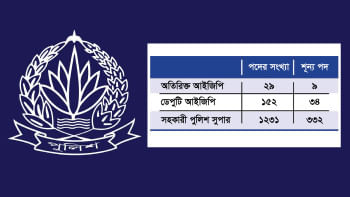Commute death sentence of Nizami
The principal lawyer for Jamaat chief Motiur Rahman Nizami yesterday appealed to the Supreme Court to commute his death sentence to life imprisonment considering his old age and illness if he is found guilty of committing crimes against humanity during the Liberation War.
Khandker Mahbub Hossain made the plea to the Appellate Division during legal arguments on the appeal filed by Nizami that challenged death penalties and life imprisonment awarded to him for wartime offences.
Earlier, the counsel prayed to the apex court to acquit Nizami, 75-year-old ameer of Jamaat-e-Islami, of all the charges levelled against him, claiming that he was not directly involved in any of those crimes.
The four-member Appellate Division bench, headed by Chief Justice Surendra Kumar Sinha, fixed December 7 for resuming hearing on the appeal for the 10th day. Attorney General Mahbubey Alam is scheduled to place arguments on that day.
The following day, Nizami's counsels will counter the attorney general's arguments, said the SC.
Khandker Mahbub yesterday told the SC that Nizami was a university student in 1971 and it was impossible for him to show the Pakistani army the pathways for committing offences.
He said the then police and intelligent agencies had abetted the Pakistan army to commit crimes against humanity and war crimes.
The Pakistanis should have apologised to Bangladesh for committing atrocities in 1971, he added.
Nizami was a collaborator of the Pakistani occupation force during the war, but he didn't directly participate in any of the crimes, claimed the lawyer.
At one stage of the hearing, the SC said the Pakistan occupation force would not have survived in Bangladesh even for three months, let alone 10 months, had the collaborators not assisted with it.
The collaborators had instigated the Pakistan force to commit offences in 1971, the court observed.
Talking to newsmen at his office, Attorney General Mahbubey Alam said Khandker Mahbub Hossain apparently confessed to his client's guilt of committing crimes against humanity by praying to the apex court to commute his death penalty.
This was the first time that a top lawyer for a Jamaat leader confessed to his client's guilt. The SC will decide now whether it would commute the capital punishment, he added.
About the BNP's reaction on Pakistan's recent statement on the Liberation War, the attorney general said the party acted intelligently by protesting the statement. “If the party did otherwise, it would have lost its existence.”
The BNP on Tuesday said the Pakistan government was trying to hide the truth about the genocide in 1971.
The party made the comment a day after Pakistan summoned acting high commissioner of Bangladesh Maushumi Rahman to its foreign ministry and denied committing any war crimes or atrocities during the Liberation War.
The International Crimes Tribunal-1 on October 29 last year found Nizami guilty of eight charges out of the total 16 brought against him and handed him death penalty on four charges and life imprisonment on four others.
Nizami on November 23 last year filed the appeal with the SC challenging the tribunal's verdict.

 For all latest news, follow The Daily Star's Google News channel.
For all latest news, follow The Daily Star's Google News channel. 



Comments